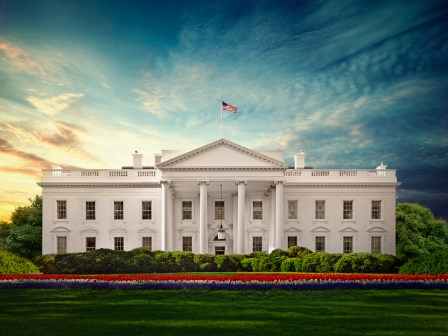White House pushes for smart cities engagement

The White House had local leaders buzzing when it announced a plan to devote roughly $160 million in federal research funds to smart cities programs this week, and now the Obama administration is working to show cities how they can take advantage of the new federal dollars.
“Cities are where the future happens first,” Secretary Julian Castro of the Department of Housing and Urban Development said at the Smart Cities Council’s “Smart Cities Week” conference in Washington, D.C., Wednesday. “They’re the incubators for bold ideas, a kind of audition stage where those ideas are to be put to the test.”
But the new initiative can only do so much if it can’t support smart cities with funds beyond this year. While $100 million of the cash the White House pledged on Monday has already been distributed, the remaining $60 million still needs approval from Congress.
Rep. Darrell Issa, R-Calif., who spoke at the event, believes the administration has the support of lawmakers to keep the money going forward.
“Next fiscal year, the president will ask for money to support the portion of his initiative that hasn’t been funded, and he’ll get it,” Issa said. “I’m very confident that we’ll find the dollars for it.”
With those assurances that the money will be available, administration officials are now trying to get the word out about how cities can get in on the action.
A variety of groups — which include the National Science Foundation, Department of Homeland Security, the Department of Transportation and the Environmental Protection Agency — are all offering up grants as part of the initiative. The number of ways to get involved in the program can seem overwhelming, but groups like the White House’s Office of Science and Technology Policy are trying to provide a roadmap for engagement.
“I think it’s critical to be able to coordinate and provide a front door for cities and stakeholders who are looking to apply for money, that work is underway,” said Dan Correa, senior adviser for innovation policy with the office.
Correa stressed that the administration is aware of the “growing challenges for sustainability and resource shortages around the world” and he thinks the White House is now in a position to encourage cities and companies to address those problems by focusing on the Internet of Things.
“The federal government has an important role in the early stages of these technologies in helping to seed and develop them,” Correa said. “This is a key export opportunity for U.S. businesses in the Internet of Things.”
The National Institute of Standards and Technology is trying to drive that IoT innovation with more than the allure of federal money. As part of the White House initiative, the group is kicking off another round of its Global City Teams Challenge, an effort aimed at encouraging local governments to work together to learn the best ways to use IoT technology and showcase their successes.
Chris Greer, the director of smart grid and cyber-physical systems program office for the NIST Engineering Laboratory, thinks this new round of the challenge can help cities find some universal standards for how to use the IoT.
“This business of reinventing the wheel over and over again city by city is not efficient,” Greer said. “It breaks the market, and it’s just not a good path forward.”
Correa noted that there’s more to the White House’s new smart cities push besides just the chance for federal funding. The administration is also supporting public-private partnerships like the new “MetroLab Network,” an effort that pairs 22 cities with nearby universities to encourage innovation.
“Work with your university, join the effort,” Correa said. “It’s a key way to get involved and take advantage of some of the research expertise at your local university.”
But beyond any program or grant, Greer believes the commitment demonstrated at the highest level of the federal government should make cities feel confident about the initiative.
“It’s a really exciting moment and you can feel that energy, and I think the White House announcement has contributed to that,” Greer said.






